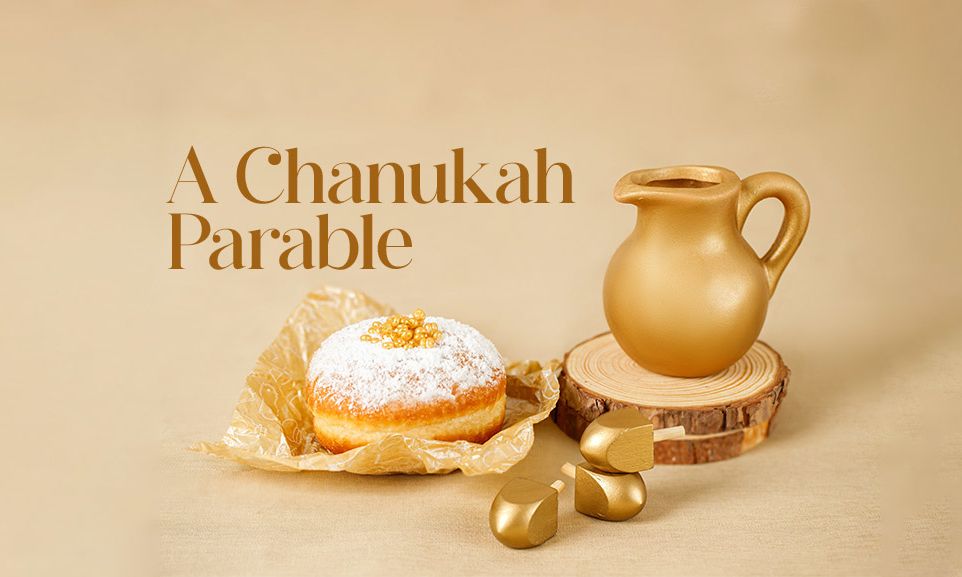
A Chanukah Parable
With a deep and painful sigh Rebbe Nachman would say, "Woe! How can a few men stand up against the whole world?!" This very day, we see how Rebbe Nachman's..

The Perpetual Test: The Righteous Few against the Masses
You delivered the mighty into the hands of the weak, the masses into the hands of the few (The “Al HaNissim” prayer for Chanukah).
Contrary to the misguided notions of the uneducated and uninformed, Judaism is not a mere preservation of outdated traditions and nostalgia of yesteryear; it is as vibrant, relevant, and meaningful today as it was thousands of years ago. Chanukah is not just a child’s celebration because the good army of the few righteous defeated the evil army of the masses some 2,200 years ago. The struggle of Chanukah continues to this very day.
The Hellenists were “benevolent” in that they didn’t kill Jews unconditionally. If a Jew was willing to sacrifice his Judaism and bend to the winds of heresy, the Hellenists would accept him into their schools, their social circles, and their homes. Such assimilation was worse than a physical death; for assimilation and capitulation to the Hellenists meant death to the soul. Since the soul transcends time and space, its death is a much greater tragedy than physical death. After all, the body eventually disintegrates while the soul is eternal.
The battle of the righteous few against the ignorant masses continues. Rebbe Nachman of Breslev forewarned us of the dangers we’d be exposed to in the generation before Mashiach (see Rebbe Nachman’s Discourses, 220):
“A tremendous spirit of agnosticism is coming to the world. Agnosticism will come to the world as a test from on High. I know that my followers will be strong and remain firm in their faith without this warning, but I am revealing this to further encourage them. Let them know that this has already been predicted… “
With a deep and painful sigh Rebbe Nachman would say, “Woe! How can a few men stand up against the whole world?!”
This very day, we see how Rebbe Nachman’s prediction came true. Hashem’s faithful are few, and even in Israel, in the King’s Palace, the non-believers appear to have the upper hand. Every day, we hear about new evil decrees against the Torah and those who cling to it. What can we possibly do to avoid being washed away by the flood of agnosticism? How does one combat the Hellenistic assimilationist spirit of the 21st Century?
Don’t despair! Just as Rebbe Nachman predicted the struggle with his holy inspiration, he also gave us the secret to winning the battle. He said that the faithful few who rise to strengthen their emuna – their pure and steadfast faith in Hashem – will not only survive, but ultimately flourish. The Rebbe warned that the agnostic masses of our generation will rise up against the faithful few. With emuna, Hashem’s faithful few are able to restore their souls, strengthen their hearts, and weather the torrents of agnosticism. Without it, they are spiritually weak and ruined, as we’ll see in the following parable, with Hashem’s loving grace:
Shmelke wasn’t exactly the brightest person in the shtetel, to say the least. Yet, thanks to Hashem’s unlimited compassion, even simple Shmelke managed to make a living from the milk of his three cows, which he’d deliver fresh every day – except Shabbat, of course – to his neighbors.
Yosef Grednik, in contrast to Shmelke, was the wealthiest person in the area. He owned the mill, the distillery, and the pickle factory. There wasn’t a person within a hundred-mile radius that didn’t bake with Grednik’s flour, drink Grednik’s vodka, or eat Grednik’s pickles. Yet, with all his money, Yosef Grednik was stingy and resentful about parting with a single kopeck, much less a ruble.
The workers in Yosef’s pickle factory made a mistake, having added too much vinegar to a twenty-barrel batch of pickles. The pickles became so sour that the fumes from the brine could kill any fly that came too close to the barrel. Yosef knew that the pickles were inedible and unmarketable. He fumed – until he came up with a scheme to rid himself of the pickles and make some money at the same time.
He ordered his workers to dispose of the sour brine, wash off the pickles, and then put them in baskets. He then sold them as low-cost fodder for gullible Shmelke’s three cows.
Shmelke was happy to buy such “high-grade” fodder for his cows at such a cheap price. The cows welcomed sour pickles as a palatable break from their normal repast of straw and hay. They ate the pickles with the same enthusiasm that they would eat fresh corn.
Within a day or two, people began to complain. “Shmelke, your milk is sour!” Shmelke couldn’t understand; every day, he’d distribute the milk within hours of milking. There was nothing fresher in all of Transylvania. The customers wanted their money back. Shmelke refused. Finally, the plaintiffs demanded a hearing in the rabbi’s study.
The wise elderly sage heard both sides. He directed his first question at Shmelke: “Have you fed the cows anything different lately?” he asked. Shmelke nodded in the affirmative, and told the rabbi about the “cucumbers” he bought from Yosef Grednik. The rabbi didn’t need to hear any more. He knew that Shmelke was the innocent victim of Grednik’s greed and treachery. He explained to the simple milkman how sour fodder leads to sour milk. Then, he summoned Yosef Grednik and demanded that the latter reimburse poor Shmelke and his customers. Yet, nobody reimbursed the poor cows for their stomach ache, which lasted for another week!
* * *
Unsuspecting Shmelke is symbolic of the Jew; Shmelke’s three cows represent nefesh, ruach, and neshamah, the three parts of the Jewish soul. Sour pickles are the agnostic media and the foreign ideologies that ruin the “produce” of a Jew, his emuna, Torah, and mitzvot, which the milk symbolizes. Grednik is the evil inclination that tries to “sour” a Jew, and to reduce him or her from the lofty levels of pure and simple faith – spiritually above the stars – to the depths of agnosticism.
Since the beginning of time, the Greeks, Hellenists, and enemies of emuna have been the overwhelming majority. Chanukah is the celebration that the pure oil with the seal of the High Priest – a national symbol of pure Torah ideology – is never fully contaminated by our enemies. Even though the faithful to the Torah are the few, they nonetheless weather the trials of the generations and the persecutions of the masses, by having implemented the “secret of survival” – the strengthening of emuna – as Rebbe Nachman has revealed to us. Rebbe Nachman promised that these precious few will be the ones privileged to merit the greeting of Mashiach in a rebuilt Jerusalem, speedily and in our time. Amen.



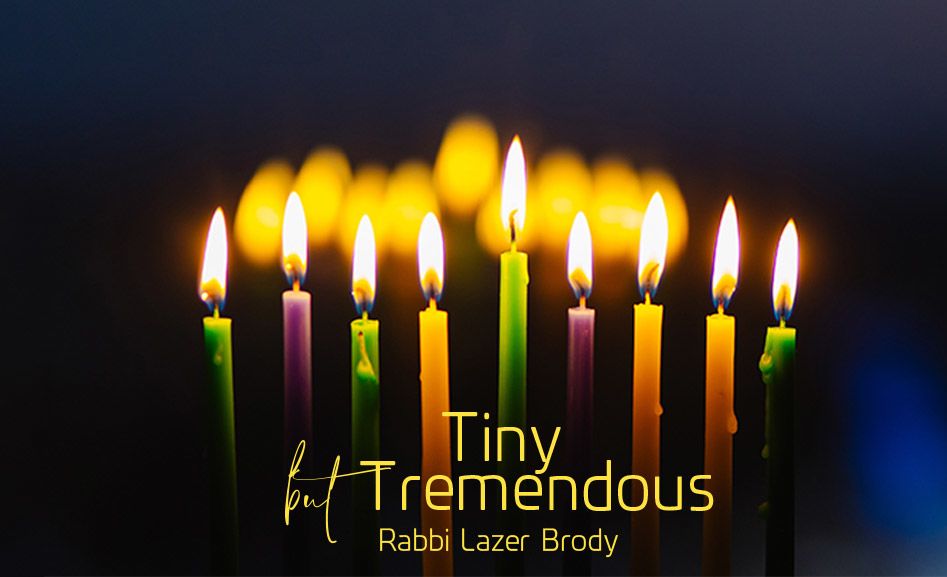
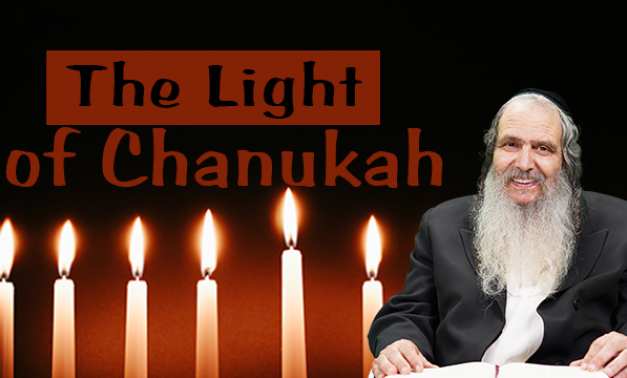
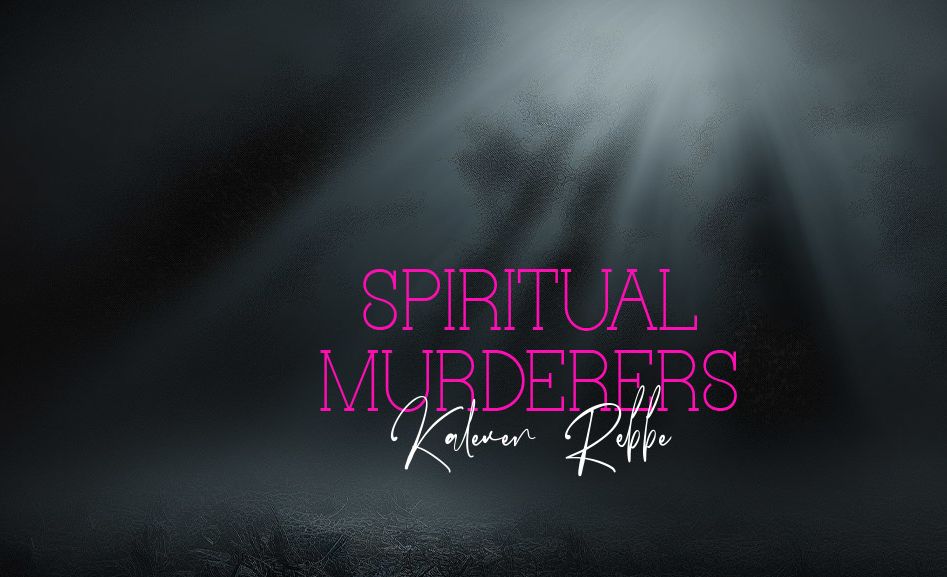

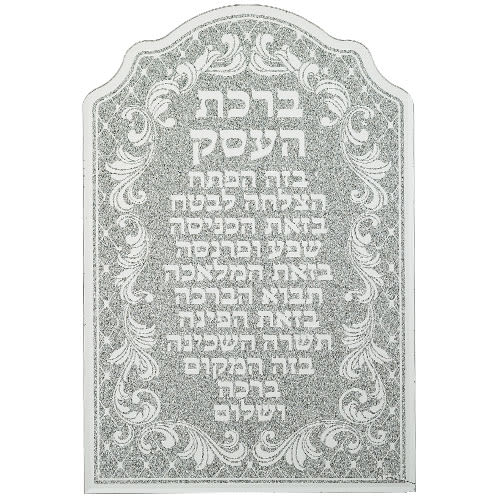
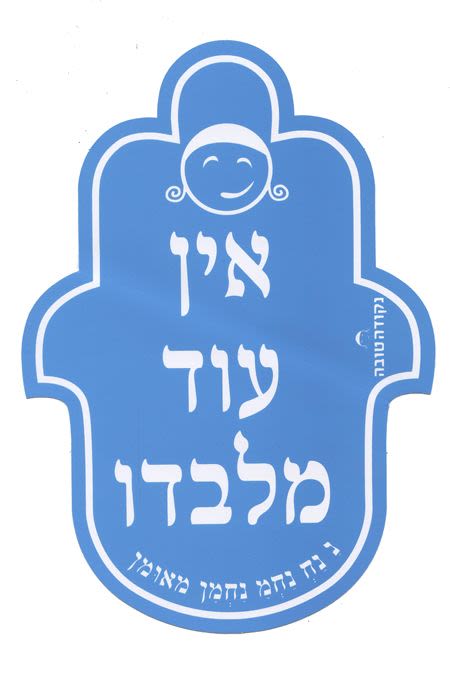



Tell us what you think!
Thank you for your comment!
It will be published after approval by the Editor.